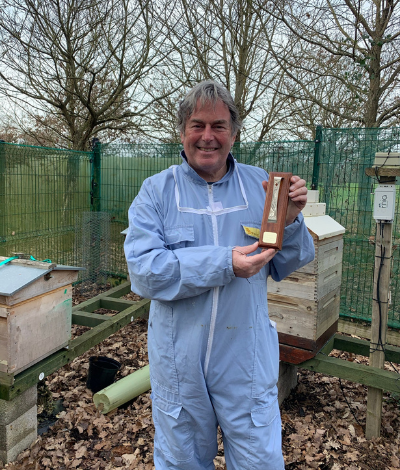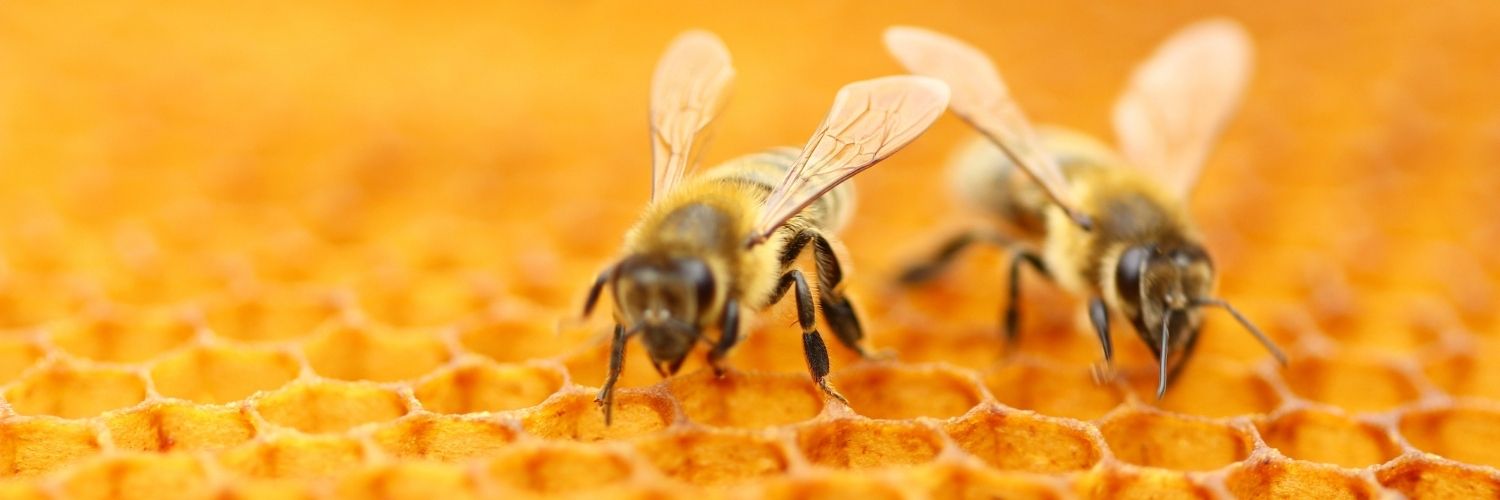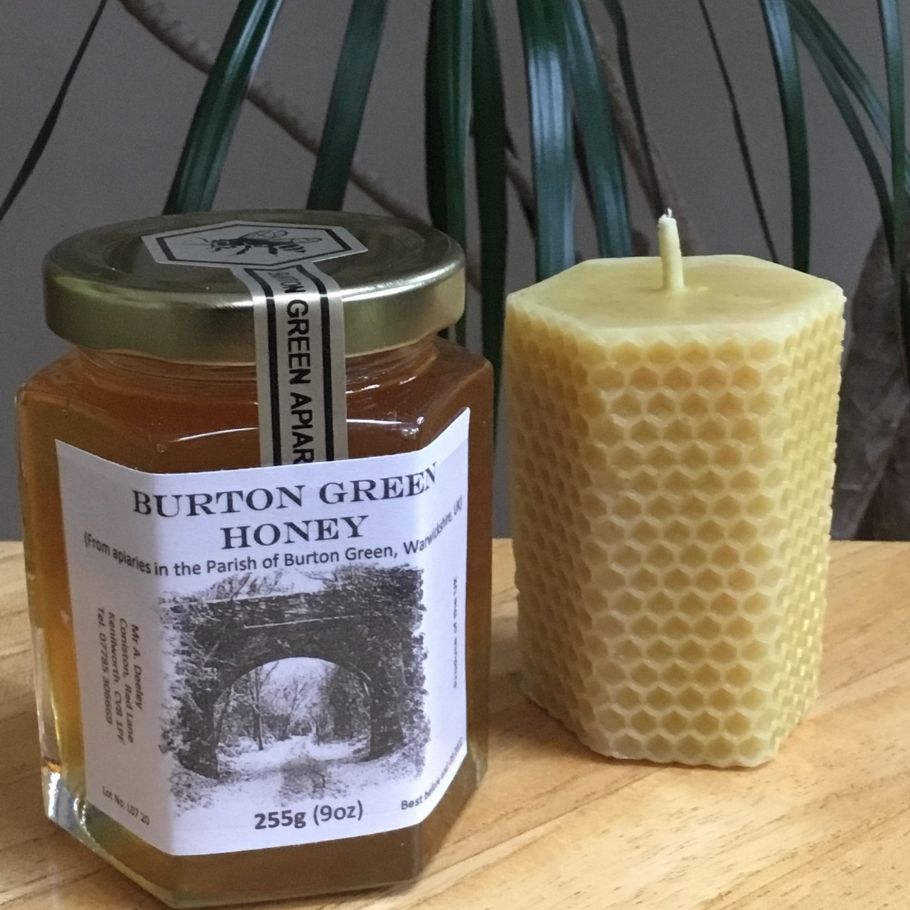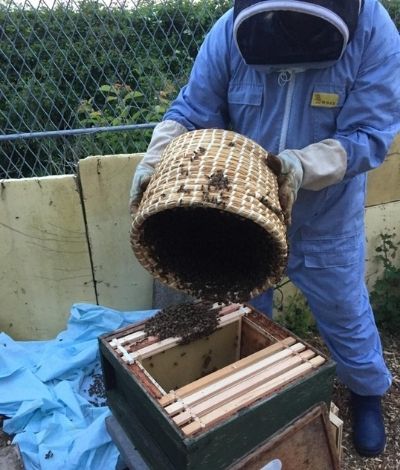About

My name is Alan Deeley and I am a Part Time Beekeeper living in the village of Burton Green in Warwickshire.
I took up Beekeeping when I retired in 2015 and I attended an Introduction to Beekeeping Course run by the local branch of the British Beekeepers Association (link to their website). I have since completed other courses on Bee Health and General Beekeeping Husbandry.
I currently manage around 20 hives across 4 Apiaries (a place where bees are kept) in the Burton Green area; I have several hives at home, then others at an Apiary where I have an Allotment, more at the University of Warwick, and some at Temple Balsall. We are fortunate in our area that we have an excellent balance of forage for the bees throughout the year.
Weather plays an important part in the success of Beekeeping and our very changeable weather patterns have a dramatic effect on each Honeybee colony and their ability to produce a good crop of honey.
All Honey and Wax products from Burton Green Honey are pure and natural. We add nothing to the honey and we only filter the honey at room temperature. Our wax products (such as candles) are made from pure filtered beeswax which is melted and poured into a mould. Read more about our wax products here
We fully understand the importance of Honey and other pollinators to the environment, so our prime focus is on sustainability and the wellbeing of our bees rather than maximising honey production.
As beekeepers we need to understand the key elements of the beehive and we undertake regular inspections of our colonies to ensure they are thriving, healthy and to minimise the risk of swarming. Bees tend to swarm from late May to mid-Summer, giving rise to the old rhyme: A swarm in May is worth a load of hay. A swarm in June is worth a Silver spoon. But a swarm in July isn’t worth a fly!
If you notice a swarm of bees in your garden don’t try to deal with it yourself, get in touch and let me remove it safely for you. Please contact me if you think you have one.
I took up Beekeeping when I retired in 2015 and I attended an Introduction to Beekeeping Course run by the local branch of the British Beekeepers Association (link to their website). I have since completed other courses on Bee Health and General Beekeeping Husbandry.
I currently manage around 20 hives across 4 Apiaries (a place where bees are kept) in the Burton Green area; I have several hives at home, then others at an Apiary where I have an Allotment, more at the University of Warwick, and some at Temple Balsall. We are fortunate in our area that we have an excellent balance of forage for the bees throughout the year.
Weather plays an important part in the success of Beekeeping and our very changeable weather patterns have a dramatic effect on each Honeybee colony and their ability to produce a good crop of honey.
All Honey and Wax products from Burton Green Honey are pure and natural. We add nothing to the honey and we only filter the honey at room temperature. Our wax products (such as candles) are made from pure filtered beeswax which is melted and poured into a mould. Read more about our wax products here
We fully understand the importance of Honey and other pollinators to the environment, so our prime focus is on sustainability and the wellbeing of our bees rather than maximising honey production.
As beekeepers we need to understand the key elements of the beehive and we undertake regular inspections of our colonies to ensure they are thriving, healthy and to minimise the risk of swarming. Bees tend to swarm from late May to mid-Summer, giving rise to the old rhyme: A swarm in May is worth a load of hay. A swarm in June is worth a Silver spoon. But a swarm in July isn’t worth a fly!
If you notice a swarm of bees in your garden don’t try to deal with it yourself, get in touch and let me remove it safely for you. Please contact me if you think you have one.



